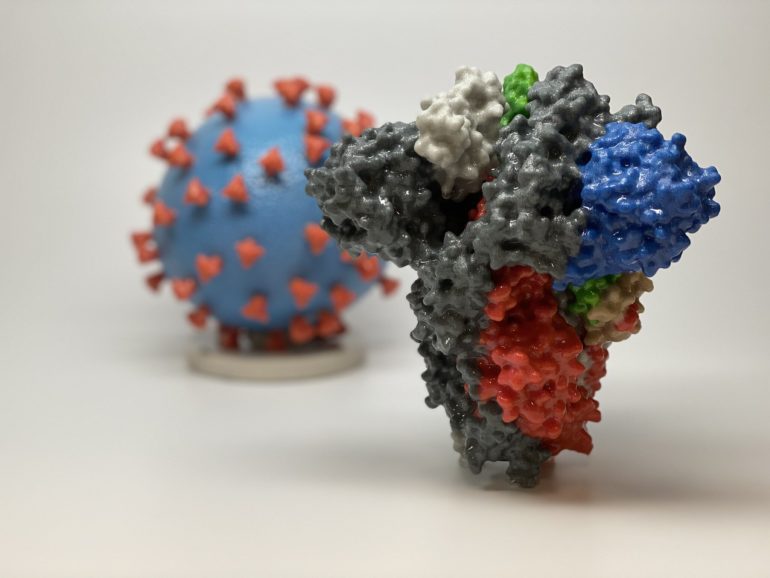Researchers have shown that a variation in the viral genome of COVID-19 improved its ability to infect human cells and helped it become the dominant strain circulating around the world today.
The study, published today in the journal Cell, shows the variation is more infectious in cell cultures under laboratory conditions. The variant, named ‘D614G’, makes a small but effective change in the ‘spike’ glycoprotein that protrudes from the surface of the virus, which it uses to enter and infect human cells.
The D614G variant of COVID-19 quickly took over as the dominant strain soon after it first appeared, with geographic samples showing a significant shift in viral population from the original, to the new strain of the virus.
Researchers from the Los Alamos National Laboratory in New Mexico and Duke University in North Carolina, partnered with the University of Sheffield’s COVID-19 Genomics UK research group to analyse genome samples published on GISAID, an international resource for sharing genome sequences among researchers worldwide.
Dr. Thushan de Silva, Senior Clinical Lecturer in Infectious Diseases at the University of Sheffield, led analysis of data from Sheffield. He said: “We have been sequencing SARS-CoV-2 strains in Sheffield since early in the pandemic and this allowed us to partner with our collaborators to show this mutation had become dominant in circulating strains. The full peer-reviewed study published today confirms this, and also that the new D614G genome mutation variant is also more infectious…



